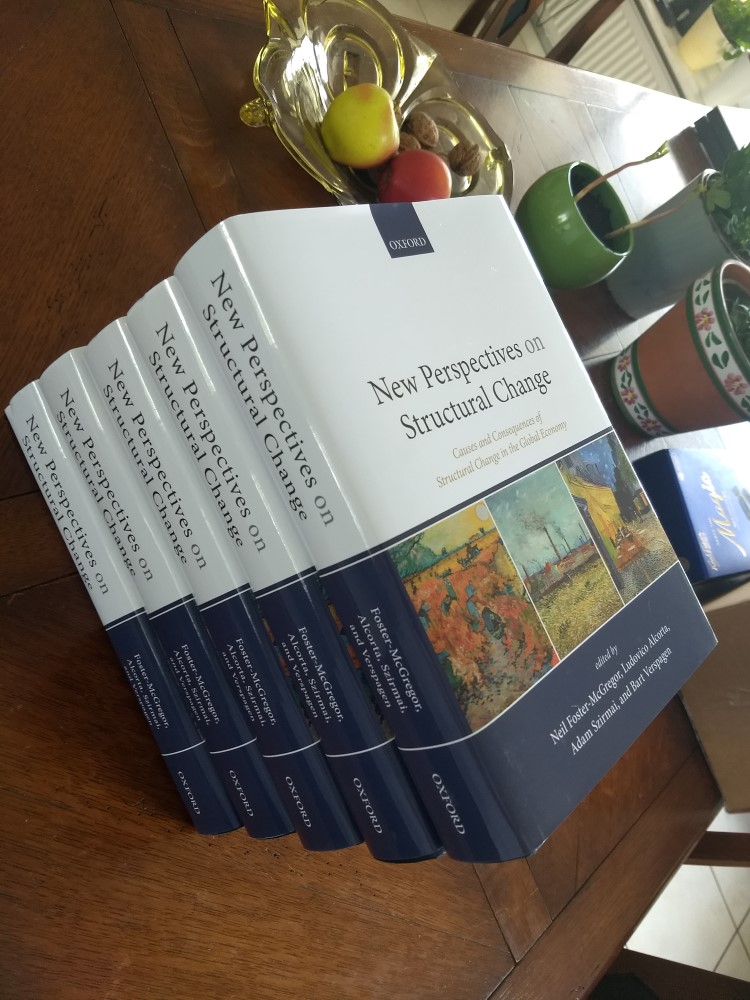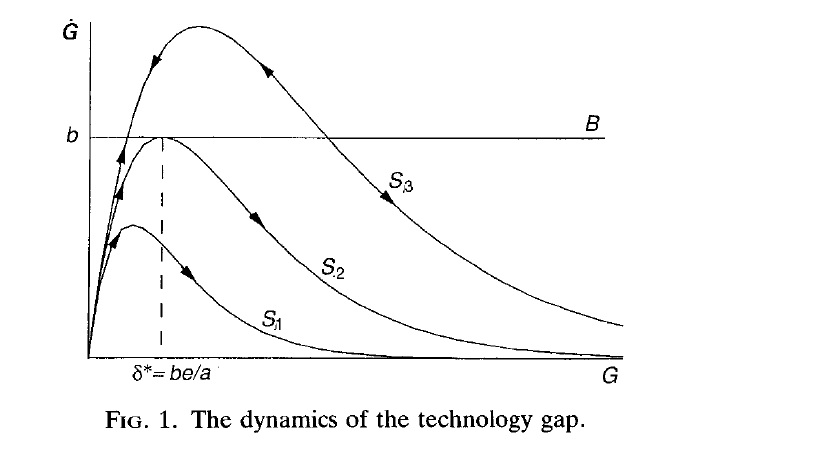
Journal publications
, 2024, Demand-led industrialisation policy in a dual-sector small open economy, Metroeconomica, early access, link at publisher (open access)
New Perspectives on Structural Change
Oxford University Press just published the book "New Perspectives on Structural Change", which was edited by Neil Foster-McGregor, Ludo Alcorta, Eddy Szirmai and myself. We worked on this book for several years, with a large team of authors, who are all top scholars in the field.

Catching up and falling behind
The topic of growth rate differentials between countries has been a main theme in my work from the very beginning. It was the main topic of my PhD thesis of 1992. Chapter 6 of that thesis contains my model of catching up and falling behind (see picture below), which was also published in 1991 in the Elsevier Journal Structural Change and Economic Dynamics. if you do not have access to that journal, you can download the paper here.

A tribute to the absence of borders
All my life I have been living close to the (Belgian) border. When I was a kid, there was still (occasional) border control, and I was told stories of old times when smugglers were active, or when - during WWI - the Germans put an electric fence on the border. With increasing European integration all this disappeared, and now one often has to pay close attention to even know that a border has been crossed. Building style, slight differences in the appearance of traffic signs, and the quality of the road are subtle hints for which side of the border one is at.
This is a very convenient situation, reflecting true integration of economic transactions and other activities. It also reflects the absence of nationalism. The local culture, including that of the other side of the border, is so much more dominant here than what is being imposed from far-away parts in the Netherlands or Belgium.
Unfortunately, some voices are calling for the re-instatement of borders, even within the EU. Intelligent cameras appear on the Belgian side of border sites on major roads. And culture is once again defined by many people in terms of nations, rather than localities.
Uitzendingen van De Stemming - radio programma L1
De Limburgse radiozender L1 zendt op zondag het discussie- en opinieprogramma De Stemming uit. In de volgende afleveringen mocht ik aantreden:
17 januari 2021, over private equity
8 november 2020, over ondernemers en ondernemerschap

Read more: Uitzendingen van De Stemming - radio programma L1